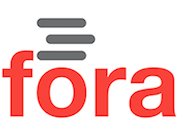The FORA ETN was specifically created to boost your research career; read here about the benefits. See below which PhD positions are still open.
- Earliest start date: Oct. 1st, 2017.
- Latest start date: April 1st, 2018.
You will be hired with an employment contract at the host institutions (thus covered by the social security scheme of the host country) and, upon successful graduation, will be awarded a PhD degree from the university where you are enrolled for the PhD studies.
The salary before tax is composed of: Living allowance €3,110 per month (€37,320/year), Mobility allowance €600 per month, and a Family Allowance of €500 per month. The family status of a researcher will be determined at the date of their (first) recruitment. For details, see Section 5 of the Marie Skłodowska-Curie Actions – Innovative Training Networks (ITN) Guide.
You will be part of the FORA team of 15 PhD students and their advisors doing multidisciplinary research. We’re looking for people with a wide variety of backgrounds: on computer science (algorithms), software engineering (Cloud Computing, service-oriented computing, middleware, distributed systems), computer engineering (hardware design and computer architecture) and industrial automation and control (distributed automation, robotics, control algorithms), as well as data science (machine learning). Read about the planned research in FORA. Each position lists its own specific requirements, besides the general mandatory requirements.
(Looking for a postdoc position related to the FORA topics? Please contact the FORA coordinator, Prof. Paul Pop, paupo@dtu.dk)
[table id=1 /]
